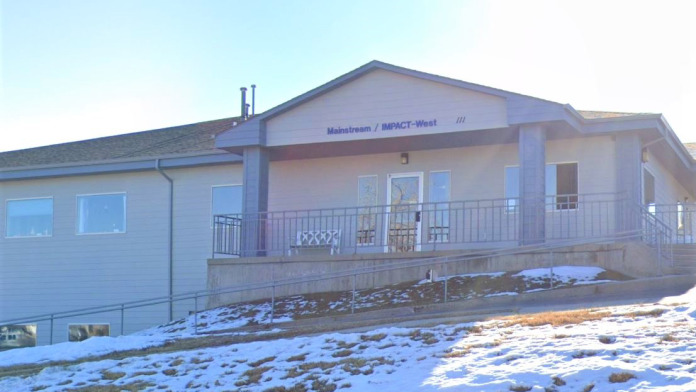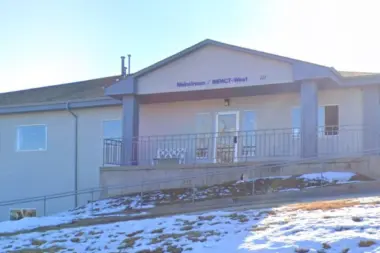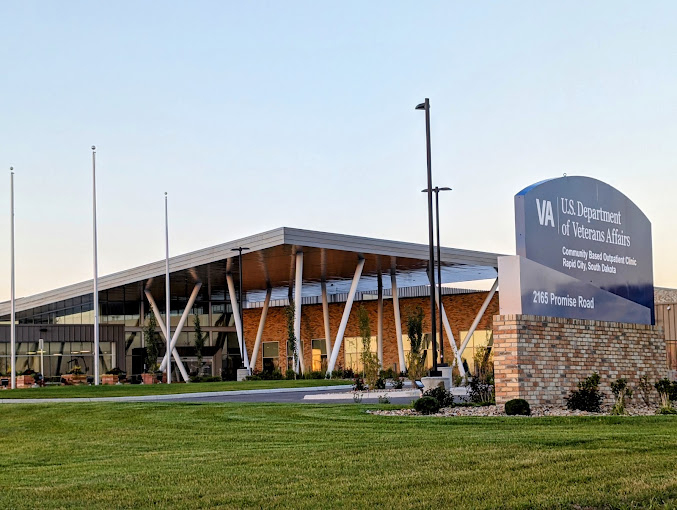I've been going to this place for several years now, and believe it marks a difference in your life. Their transitional living facilities and crisis care are top notch, believe me. You can start all over again in here
About West River Mental Health
Their residential program is known as Full Circle. It’s a specialty program for women with drug addictions who’re currently pregnant or mothering. Children up to 10 years old can live at the residence while their moms participate in treatment. Treatment plans are individualized and encompass a range of therapies, including trauma-focused care, parenting education, vocational training, prenatal and postpartum care, and life skills training.
Outpatient treatment is available for all clients who need to work through their condition by addressing the underlying, psychological components of their behavior. Available services for you include individual and group counseling sessions to learn healthy coping skills. Common areas addressed include stress and anxiety, anger management, self-esteem issues, and grief. Other programs include psychiatric services and medication management.
Their aftercare services include links to other community services. You can get referred to sober housing, career counseling, additional healthcare services, and other resources.
Latest Reviews
Rehab Score
Gallery


Accepted Insurance
Other Forms of Payment
Private insurance refers to any kind of healthcare coverage that isn't from the state or federal government. This includes individual and family plans offered by an employer or purchased from the Insurance Marketplace. Every plan will have different requirements and out of pocket costs so be sure to get the full details before you start treatment.
Self-pay involves paying for treatment out of your own pocket. You can use savings or credit, get a personal loan, or receive help from family and friends to fund your treatment. If you don't have insurance or your insurance plan doesn't cover a specific program, self-pay can help ensure you still get the care you need.
Medicare is a federal program that provides health insurance for those 65 and older. It also serves people under 65 with chronic and disabling health challenges. To use Medicare for addiction treatment you need to find a program that accepts Medicare and is in network with your plan. Out of pocket costs and preauthorization requirements vary, so always check with your provider.
Medicaid is a state based program that helps lower-income individuals and families pay for healthcare. Medicaid covers addiction treatment so those enrolled can use their coverage to pay for rehab. When a program accepts Medicaid the client often pays very little or nothing out of their own pocket.
Military members, veterans, and eligible dependents have access to specific insurance programs that help them get the care they need. TRICARE and VA insurance can help you access low cost or no cost addiction and mental health treatment. Programs that accept military insurance often have targeted treatment focused on the unique challenges military members, veterans, and their families face.
Private insurance refers to any kind of healthcare coverage that isn't from the state or federal government. This includes individual and family plans offered by an employer or purchased from the Insurance Marketplace. Every plan will have different requirements and out of pocket costs so be sure to get the full details before you start treatment.
Addiction Treatments
Levels of Care
Outpatient Programs (OP) are for those seeking mental rehab or drug rehab, but who also stay at home every night. The main difference between outpatient treatment (OP) and intensive outpatient treatment (IOP) lies in the amount of hours the patient spends at the facility. Most of the time an outpatient program is designed for someone who has completed an inpatient stay and is looking to continue their growth in recovery. Outpatient is not meant to be the starting point, it is commonly referred to as aftercare.
Residential treatment programs are those that offer housing and meals in addition to substance abuse treatment. Rehab facilities that offer residential treatment allow patients to focus solely on recovery, in an environment totally separate from their lives. Some rehab centers specialize in short-term residential treatment (a few days to a week or two), while others solely provide treatment on a long-term basis (several weeks to months). Some offer both, and tailor treatment to the patient's individual requirements.
Intensive outpatient programs (IOP) are well suited to clients who are leaving inpatient rehabs, those who wish to remain in their own homes while in early addiction treatment, and those at an elevated risk of relapse. Clients are generally expected to receive between nine and 20 therapy hours weekly, though the intensity and frequency of care declines as clients stabilize. Intensive outpatient rehabs often feature a range of services, including counseling, recovery education, and medication assisted treatment (MAT).
Intervention services help families plan drug interventions in South Dakota. These structured, loving confrontations are designed to encourage the person abusing substances to get crucial treatment. An intervention specialist can facilitate the intervention, educate everyone involved about addiction, and guide the family and individual to appropriate treatment. This can provide a seamless transition into an inpatient rehab program.
To manage withdrawal symptoms from alcohol and drugs, it is important to seek 24-hour clinical care in South Dakota. Medical personnel can monitor your symptoms and provide appropriate support with clinical treatment, medications, and emotional support. This is much safer and more comfortable than at-home detox, where medical staff are not on-site to quickly respond if withdrawal symptoms become severe or life-threatening.
Treatments
Mental health rehabs focus on helping individuals recover from mental illnesses like bipolar disorder, clinical depression, anxiety disorders, schizophrenia, and more. Mental health professionals at these facilities are trained to understand and treat mental health issues, both in individual and group settings.
A person with alcoholism (alcohol use disorder) struggles with being unable to stop drinking too much alcohol, which may make them unable to function in society. To overcome this alcohol addiction, they may need alcohol rehab in South Dakota. This treatment provides a safe and structured environment to detox and move toward a life of sobriety. Options include various types of inpatient and outpatient programs.
Support provided by drug rehab in South Dakota includes social, physical, and emotional aspects. Program participants learn how to meet needs in each of these areas without turning to drugs. The goals of the program are freedom from drug dependency and long-term recovery.
In South Dakota, individuals seeking substance abuse treatment can typically find a range of inpatient and outpatient drug and alcohol rehabs. These programs incorporate individual and group therapy, skills training, with evidence-based therapies such as cognitive-behavioral therapy (CBT), dialectical behavior therapy (DBT), and trauma-focused interventions. By focusing on improving coping skills and addressing any mental health concerns, formal addiction treatment promotes long-term sobriety outcomes, improved relationships, and better quality of life.
Programs
Adult rehab programs include therapies tailored to each client's specific needs, goals, and recovery progress. They are tailored to the specific challenges adult clients may face, including family and work pressures and commitments. From inpatient and residential treatment to various levels of outpatient services, there are many options available. Some facilities also help adults work through co-occurring conditions, like anxiety, that can accompany addiction.
Young adulthood can be an exciting, yet difficult, time of transition. Individuals in their late teens to mid-20s face unique stressors related to school, jobs, families, and social circles, which can lead to a rise in substance use. Rehab centers with dedicated young adult programs will include activities and amenities that cater to this age group, with an emphasis on specialized counseling, peer socialization, and ongoing aftercare.
Serving in the military is both mentally and physically challenging, and can result in trauma that persists even after combat ends. Military programs are tailored to the specific and often complex needs of active duty personnel, veterans, and military families. Clients often access these programs through the U.S. Department of Veterans Affairs (VA).
Rehabs for women provide a safe, nurturing space for female clients to heal. These treatment programs consider the specific obstacles that women can face during recovery and place a special emphasis on mental, social, physical, and reproductive health. They explore how each woman's experience has shaped the trajectory of their substance use, addressing issues such as sexual abuse and past trauma.
Clinical Services
Dialectical behavior therapy teaches you coping skills and problem solving. You'll learn how to manage your emotions and use your new skills to create healthier patterns of thought and behavior. Treatment typically lasts six months and includes individual and group sessions.
Group therapy is any therapeutic work that happens in a group (not one-on-one). There are a number of different group therapy modalities, including support groups, experiential therapy, psycho-education, and more. Group therapy involves treatment as well as processing interaction between group members.
In individual therapy, a patient meets one-on-one with a trained psychologist or counselor. Therapy is a pivotal part of effective substance abuse treatment, as it often covers root causes of addiction, including challenges faced by the patient in their social, family, and work/school life.
Trauma therapy addresses traumatic incidents from a client's past that are likely affecting their present-day experience. Trauma is often one of the primary triggers and potential causes of addiction, and can stem from child sexual abuse, domestic violence, having a parent with a mental illness, losing one or both parents at a young age, teenage or adult sexual assault, or any number of other factors. The purpose of trauma therapy is to allow a patient to process trauma and move through and past it, with the help of trained and compassionate mental health professionals.
While participating in couples therapy, you'll attend weekly sessions with your partner. The therapist will help you talk through the challenges you're facing and establish goals for treatment. You'll learn insights on how to manage those issues and receive homework assignments to practice new behaviors.
Family therapy focuses on collectively healing each family member, which improves the interactions within the family unit. Therapists work with individual members and the family unit to develop new communication and coping skills, resolve conflicts, and develop practices that support their loved one's recovery.
The core concepts of cognitive behavioral therapy in South Dakota are that patterns of thoughts and behaviors are linked and that they can be changed. Treatment involves identifying negative patterns and learning how to change them into positive ones.
Staff & Accreditations
Staff
Amy
CEO
Amy
Director of Leadership Development
Kay, CFO
Director of Operations
Bethany
Director of Human Resources
Accreditations

The Substance Abuse and Mental Health Services Administration (SAMHSA) is a branch of the U.S. Department of Health and Human Services. Established in 1992 by congress, SAMHSA's mission is to reduce the impact of substance abuse and mental illness on American's communities.
SAMHSA Listed: Yes
Contact Information
111 North Street
Rapid City, SD 57701





